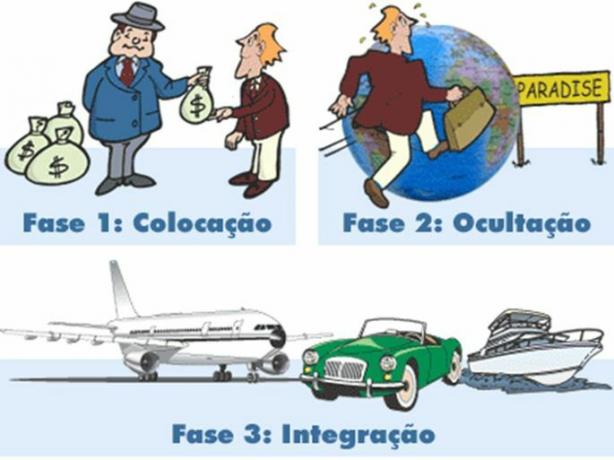International trade is the exchange of goods and services between people or companies from different countries. Nations can sell their products outside their territory (export) or they can purchase products from other countries (import).
Trade exchanges between nations have taken place since antiquity, but it was with globalization and evolution in the means of communication and transport, at the end of the 20th century, that this phenomenon intensified.
If, on the one hand, international trade brings advantages such as product diversification, it can harm a country's internal economy. To prevent this from happening, countries often adopt barriers or tariffs.
It is also common for countries to form economic blocks and do Commercial agreements in order to facilitate the flow of goods. Examples of such initiatives are the European Union, Mercosur and NAFTA.
International trade is governed by norms from organizations such as the World Trade Organization (WTO) and the International Chamber of Commerce (ICC).
See also the meaning of globalization.
Brief history of international trade
Trade between different peoples has existed since the antique. One of the earliest examples of trade was the Silk Road, a route that linked China to the Mediterranean Sea. The peak of this route happened around 150 AD. Ç.
THE maritime expansion started in the 15th century it also inaugurated an important moment in commercial exchanges. The prevailing economic model in that period was mercantilism and a nation's wealth was measured by its ability to accumulate metals.
know more about mercantilism.
For the accumulation of metals, the States sought to maintain surpluses in the trade balance, that is, to export more than to import. They did this by stimulating exports and imposing barriers on imports.
Already in the middle of the 20th century and especially at the end of World War II, trade and commercial alliances between countries intensified.
International financial organizations are created, such as the International Monetary Fund (IMF) and GAAT (General Agreement on Tariffs and Trade) - an agreement to reduce tariffs which in 1995 would be replaced by World Trade Organization (WTO).
Technological advances since then have facilitated communication and the flow of goods and services in the world and today we are witnessing the phase of more intense commercial exchanges between nations in the world.
See also the meaning of trade balance and IMF
Theories of Comparative Advantages
One of the main theories of international trade is the comparative advantage theory, formulated by the British economist David Ricardo in the beginning of the 19th century.
According to this theory, each country produces the goods in which it has greater productivity compared to other countries.
For example, Brazil and Argentina both produce cheese and coffee, but Argentina is more productive in cheese production and Brazil is more productive in coffee production.
In this condition, it is more advantageous for these countries to specialize in the goods that have more productivity and then trade these products among themselves.
Economic blocks
The economic blocs are formed by a group of countries that seek to intensify commercial exchanges and obtain advantages in commercialization between the countries of the group.
The number of economic blocs around the world began to grow at the end of World War II and especially after the end of the Cold War, in the 1990s. There are 4 different types of blocks, they are:
- Free Trade Area: countries belonging to a free trade area enter into an agreement to reduce or even eliminate customs duties. Example: Naphtha
- Customs union: it has the same characteristics as a Free Trade Area, but a common tariff is established for trading with other countries. Example: Mercosur
- Common Market: it has the same characteristics as a Free Trade Area and a Customs Union and, in addition, there is free movement of goods, services and people between countries. There are currently no Common Markets.
- Economic and Monetary Union: it has all the characteristics of the other types of blocks and, in addition, they adopt the same currency. Example: European Union
Learn more about economic blocks: NAPHTHA, European Union and Mercosur.
Advantages and Disadvantages of International Trade
One of the advantages of international trade is the possibility for consumers to buy products that are not produced in their country. For example, you can buy Colombian coffee or Mexican pepper in markets in Brazil with some ease.
In addition, the opening of markets for foreign companies increases the competition and can lower the price of products to consumers. But on the other hand, this entry of imported products can harm and even break national industries, which can weaken the country's internal economy and job creation.
Difference between international trade and foreign trade
Despite being very similar concepts, international trade and foreign trade are two different concepts. International trade, as already discussed, refers to the exchange of goods and services between different countries.
These exchanges are governed by norms and agreements and are mediated by international organizations created to facilitate these flows. that is, the international trade is governed by rules established between countries.
O foreign trade, on the other hand, refers to the set of import and export rules of one country in relation to another, that is, they are the internal rules and laws that regulate these activities.
A country's internal rules deal with tax, administrative, financial and customs issues for both goods entering and leaving the country. Despite being rules valid within the national territory, they generally comply with international law.
See also the meaning of trade balance, free trade zone and Brexit.

